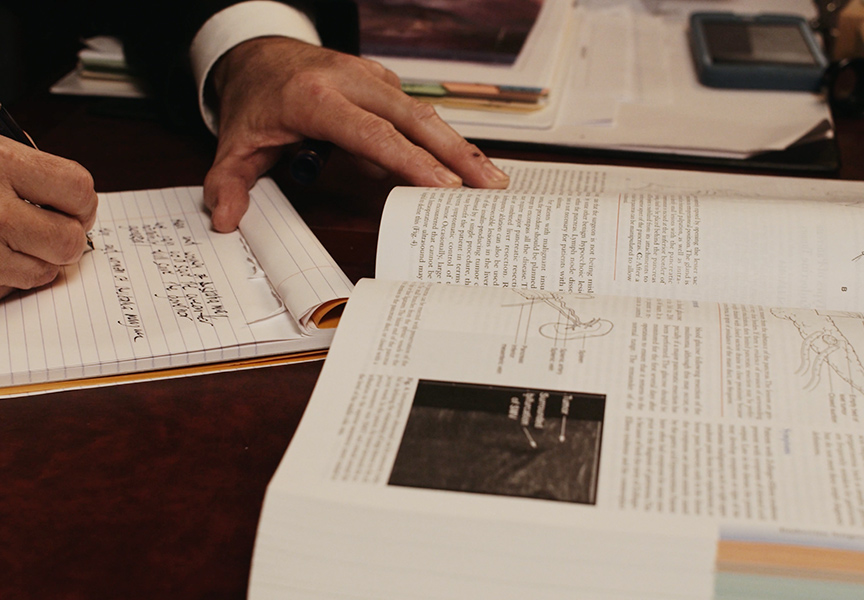Workcover
WorkCover lawyers
who have you covered
If you have been injured or suffer from an illness that you think might be related to your work, you may be able to claim compensation through WorkCover.
All Victorian full-time, part-time, and casual workers are entitled to compensation under the WorkCover scheme.



Undoubtedly the most empathetic and hard working lawyer a person could ask for. Barbante Personal Injury Lawyers will ensure you are well looked after. All the staff are friendly and accommodating. Highly recommend Barbante Lawyers.
Elise Lorenz
WorkCover ClaimYou Could Be Entitled to the Following Benefits
Weekly Payments
If you’ve experienced a work-related injury or illness, it’s often likely you will need time off work while you recover. As a result, you may be eligible to receive weekly compensation for lost wages.
Medical and Like Expenses
You could be entitled to claim the reasonable associated costs for treatment expenses through WorkCover. This can include the cost of medical appointments, medical procedures, medication, equipment, travel expenses and rehabilitation.
Impairment Benefit
If you have suffered from a permanent impairment as a result of your work related injury or illness, you may be eligible for a once-off lump sum payment.
Common Law Damages
Common law compensation exists to recognise the long term impact a workplace related injury or illness has had on your life. This includes damages for pain and suffering and economic loss.

We have the experience youneed to get the compensationyou deserve.
Barbante Personal Injury Lawyers have significant experience and expertise in this area. We will work one-on-one with you to guide you through the claims process and your WorkCover rights, answering any of your questions with compassion and respect.
Various steps are involved in making a WorkCover claim, including lodging a workers injury claim form and discussing your situation with a doctor. There are also some statutory time limits to consider, so we encourage you to seek advice from us as soon as you can.
We Will Assist You Through Each Stage and Work to Achieve the Best Outcome
Step 1
Lodge Your Workcover Claim
You must file a WorkCover claim within 30 days. If it has been longer than 30 days, you still have options but should speak to us immediately. We can help you if your claim is accepted or rejected. If your claim is accepted, we will help if you have any issues with your employer or insurer. You may also be eligible for additional lump-sum compensation.
Step 2
Attend Your Obligation Free Initial Appointment
We will discuss your injury and determine if you have a claim. This includes letting you know your legal rights and entitlements, our fee arrangement, and the next steps involved should you proceed.
Step 3
Investigate Your Claim
Once you choose to proceed, we will obtain relevant medical information from your treating doctors to understand your injury and its impact on your life.
We will also organise independent medical examinations by an approved medical practitioner or allied healthcare professional. Expert reports, such as from engineers or safety experts, may also be needed. Our team will regularly update you about the progress of your claim.
Step 4
Resolution
Most cases are resolved without going to court. However, if you are not presented with a reasonable resolution for your claim, we may have to take it to court to ensure you receive the compensation you deserve.

WorkCover FAQ
WorkCover insurance is compulsory for Victorian businesses. This insurance provides coverage to employers in the event that their workers sustain injuries or become ill due to work-related factors. If you have been injured and your employer is deemed responsible, their insurance company will be responsible for paying the compensation.
You may be eligible to file a claim through WorkCover if you have been injured at work or if you have a pre-existing injury or illness that has worsened as a result of your employment. The WorkCover compensation scheme extends its coverage to all injured employees, including part-time and casual workers. Additionally, subcontractors may also be eligible to receive compensation through WorkCover.
If you have been injured at work, taking the necessary steps to protect your rights and entitlements is important. Firstly, report the incident and your injury to your employer as soon as possible. You should then contact WorkSafe Victoria and complete a Worker’s Injury Claim Form. Complete questions 1-6 in Part A. After this, give the form to your employer to complete Part B. Your employer then has a legal duty to complete Part B of the Worker’s Injury Claim Form and submit it to their WorkSafe Agent along with your Certificate of Capacity within 10 calendar days unless the claim is for limited medical costs only.
If necessary, you can give the form directly to your employer’s WorkCover Agent or WorkSafe. Next, visit your local doctor and obtain a WorkSafe Certificate of Capacity. This should also be given to your employer or the WorkCover Agent. If your claim is not accepted within 30 days, it is important to contact the Agent for a response. Finally, contacting a lawyer for legal advice about your WorkCover claim is advisable to protect your rights and entitlements.
The WorkCover Insurer will notify you and your employer in writing that your claim has been accepted. The notification will include details about calculating your pre-injury average weekly earnings (PIAWE). Your employer must start paying on your usual days within 7 calendar days of WorkSafe Agent accepting your claim. Your employer is required to continue paying you as long as you provide valid Certificates of Capacity, even if you have resigned from your workplace.
WorkCover insurance covers those workers injured at work or suffering a work-related illness. You might be entitled to benefits. These benefits are listed within the statutory WorkCover scheme. These can include the following:
- Medical and Like Expenses
- Weekly Payments
- Impairment Benefit
- Common Law Damages
Once you have an accepted WorkCover claim, you will generally be entitled to all reasonable expenses incurred due to the injury. This can include:
- Expenses to treat your injury (for example, doctors, medication, physiotherapy, chiropractic)
- Personal equipment to assist you
- Rehabilitation
- Attendant care, including domestic help, transportation, and modifications to your home
Note: If the WorkCover insurer declines to pay for any medical and like expenses, you should obtain your case manager’s copy of that decision. You have the right to challenge these decisions at the Workplace Injury Commission within 60 days of that decision.
You may be entitled to weekly payments if you cannot work or can only perform modified duties or hours due to your injuries.
The below table provides an outline of the entitlement to payments:
| Entitlement Period | Work capacity | Entitlement |
| First Entitlement Weeks 0-13 |
Unable to return to pre-injury work | Up to 95% of your pre-injury average weekly earnings (also known as PIAWE) (currently $2590* a week) or the maximum weekly compensation amount – whichever is less.
Entitlement is minus what you are currently earning at work. |
| Second Entitlement Weeks 14-130 |
Unable to return to pre-injury work | Up to 80% of PIAWE (currently $2590* a week) less 80% of your current earnings.
Your weekly entitlements will depend on your capacity to return to work. If your PIAWE includes any overtime or shift allowance, this drops off after 52 weeks. |
| After 130 weeks | You will need to prove that you are unable to work (no current work capacity) and this is likely to continue indefinitely | 80% of your pre-injury average weekly earnings subject to a Statutory maximum of double the Victorian average weekly earnings (currently $2590* a week). These payments can continue until retirement age. |
You may be entitled to weekly payments if you cannot work or can only perform modified duties or hours due to your injuries.
For the first 13 weeks, these payments are assessed at 95% of your pre-injury average weekly earnings. From 14 weeks onwards, weekly payments are then assessed at 80%. Pre-injury shift and overtime allowances are accounted for in your weekly payments for the first 52 weeks. Your employer will also be required to pay Superannuation if you have received 52 weeks or more of weekly payments and continue to receive them.
Weekly payments usually last up to 130 weeks. However, in some circumstances, you may be able to receive these benefits beyond 130 weeks if you have no capacity for any work, and it is likely to continue indefinitely.
While receiving weekly payments, you must make reasonable efforts to participate in occupational rehabilitation and return to work plans. Your employer is also responsible for keeping your pre-injury employment available for at least 52 weeks.
If your weekly payments are suspended, reduced, or terminated, Barbante Personal Injury lawyers will advise you accordingly. During the first 52 weeks, your pre-injury average weekly earnings (PIAWE) include overtime and shift allowances. However, after this period, these additional earnings are not considered part of your PIAWE. This could result in a reduction of payments for some workers.
After 130 weeks of incapacity, the insurer will evaluate whether you have a current work capacity. If you don’t have a current work capacity that is expected to continue indefinitely, you will continue to receive 80% of your PIAWE. Alternatively, if you are working at least 15 hours a week, earning a minimum amount, and working to your full capacity, you can receive the difference between 80% of your earnings and 80% of your PIAWE. However, you must apply separately to WorkCover to receive these payments.
In certain cases, your employer may also be obligated to provide additional payments, known as “make-up pay,” to supplement your WorkCover payments. This is typically outlined in the relevant awards and may apply during the initial 26 weeks. It’s important to note that this responsibility falls on your employer, not the WorkCover insurer.
In certain circumstances, you may be entitled to an impairment benefit. An impairment benefit is a once-off lump sum payment to injured workers who have a permanent injury resulting from a work-related injury or illness. An impairment benefit also does not require you to establish that your employer is at fault caused your injuries for you to be entitled to it.
An impairment benefit is only paid if:
- your condition has stabilised, and
- you are assessed as having a 10% whole person impairment (30% in the case of psychological impairment), or
- you have suffered a total loss of effective use of a body part, including an amputation.
If you have injured your spine, feet, legs, arms or hands after December 3 2003, you are assessed as having a 5% whole person impairment or more.
Accepting an impairment benefit does not affect your other entitlements.
Common law damages are a lump-sum payment of money intended to compensate you for your loss following an injury caused by the negligence of another person or entity.
There are two elements necessary for an injured person to recover common law damages:
The injury must be considered a “serious injury”
The law defines a ‘serious injury’ and is refined by the Court’s relevant cases. Generally, the process of establishing a serious injury starts with an assessment of your permanent impairment. If your impairment is 30% or more, your injury will automatically be considered a ‘serious injury’. An impairment assessment of 30% is an extremely high threshold, and most workers do not satisfy this requirement. If your permanent impairment is less than 30%, you will need to apply to the WorkCover insurer for a serious injury certificate to pursue common law damages. Most serious injury applications are made on the below-listed definitions, often described as the ‘narrative test’. The requirements are:
- permanent serious impairment or loss of a body function; or
- permanent serious disfigurement; or
- permanent severe mental or permanent severe behavioural disturbance or disorder; or
- loss of a foetus.
The injury was due to the employer’s negligence
Your injury needs to be the result of, or at least in part, due to, the fault or negligence of your employer or another party. If your employer did not consider your work processes appropriately or if your injury was foreseeable and could have been avoided somehow, you may satisfy negligence and be entitled to common law damages. Barbante Personal Injury Lawyers can give detailed advice in determining negligence in your claim.
Common law damages have two components:
Pain and Suffering: These are general damages paid to compensate for the suffering and loss of enjoyment of life. If you have a permanent serious injury that is the result of negligence on your employer or some other person that occurred in the course of your employment, you could be entitled to pain and suffering damages. You can claim general damages for pain and suffering, even if you are still working.
Loss of Wages: These are damages paid for the past and future loss of wages if you have a serious injury and have suffered a permanent 40% loss of earning capacity with your pre-injury earning capacity.
A Certificate of Capacity is an official document that describes your injury, illness, capacity to work, and any limitations you have performing your regular work tasks.
Once your claim is accepted and if you are unable to do your normal working job after 14 days post-injury, you must keep getting certificates every 28 days from your doctor to show you cannot work or that you have restrictions on your ability to work.
Certificates must be given to your employer, who passes them on to the Insurer. The Insurer then pays the compensation to your employer, who pays you. Your employer takes PAYG tax out of this amount.
If your injury occurred interstate and your employer’s principal place of business is in Victoria, you are entitled to make a WorkCover claim. This will entitle you to weekly payments, medical and like expenses and an impairment benefit. However, common law damages for pain and suffering and loss of earnings may be ruled by the state where the injury occurred.
A decision made by a WorkCover insurer may be referred to the Workplace Injury Commission (WIC). The WIC is a conciliation service that facilitates disputes involving all parties, including Workers, Employers, VWA Agents, or Self-Insurers. The conciliator helps you find a way to resolve the dispute but has only limited powers to make a binding decision.
Disputes that often go to the WIC include:
- Rejection of a WorkCover claim
- Termination of weekly payments
- Failure by the Insurer to calculate pre-injury average weekly earnings correctly
- Partial acceptance of liability (e.g. injuries claimed are back and shoulder, but only liability for the shoulder is accepted);
- Failure for a WorkCover Insurer to make a decision within 28 days of receiving a request.
- Rejection of medical and like expenses
An overview of the WIC process:
- You have 60 days from receiving the decision you are disputing to complete a WIC request form. Note: The WIC may accept an application for conciliation if it is provided after 60 days. Reasons must be provided for the late application.
- The WIC request form is sent with supporting documentation, including medical reports and a written summary of why you request Conciliation. We will do this for you.
- A ‘Request for Medical Report Form’ will be supplied once the request for Conciliation has been lodged. This form gives your treating health practitioner permission to provide a medical report to the WIC. Your WorkCover Insurer will pay the reasonable cost of the medical reports.
- A conciliation date will be set.
Once the Conciliation has occurred, there will be six potential outcomes:
- The Insurer or Self Insurer reverses or withdraws their decision
- The Insurer or Self Insurer makes you an offer to settle the dispute
- The dispute is referred to a Medical Panel. A Medical Panel comprises a number of doctors who will read the documentation, examine you, and decide on the medical question, which is then binding on the parties and the Court.
- The dispute is referred to arbitration.
- The dispute is referred to either the Magistrates’ Court or County Court.
- The Conciliation Officer makes a direction requesting that the Insurer or Self Insurer reverses their decision as it has no reasonable basis.
Barbante Personal Injury lawyers have extensive experience concerning disputes with the WorkCover Insurer. We will guide you through the process and ensure you maximise all your entitlements.
You are also entitled to claim the death of a family member. You might be entitled to a dependency claim if you depended on a family member who died because of an injury.
Your entitlements include the following:
- A lump sum payment for dependants
- A weekly pension for dependent partners and children:
- A partner for the first 13 weeks following the worker’s death, the pension is calculated at 95% of the worker’s pre-injury pay. From 14 weeks until three years following the worker’s death, the pension is calculated at 50% of the worker’s pre-injury pay.
- Children dependent on a deceased worker may also receive a weekly pension of 5% of a worker’s pre-injury pay. The entitlement commences from 14 weeks after the worker’s death and continues until the child is 16 years old or ceases to be a full-time student.
- Payment of the reasonable costs of grief counselling services to immediate family members
- Payment of the reasonable costs of burial or cremation
- Payment of the reasonable costs for travel and accommodation for immediate family members to attend the funeral or cremation service
- Reimbursement of expenses for non-dependent family members
A claim must usually be brought within six years of the worker’s death. However, an extension of time can be obtained in some instances. It should be noted that common law damages in this circumstance are uncommon as damages are offset against received death benefits. Given the complex nature of these claims, it is important to get legal advice as soon as possible. Barbante Personal Injury lawyers have extensive experience in death claims and can assist you through these challenging times.
Once you become aware of your injury, you should report the injury to your employer and lodge a Workers Injury Claim Form within 30 days. Once you have completed your claim form, you must give it to your employer, who will forward it to their Insurer. Your claim will be assessed within 28 days.
A common law claim for pain and suffering and loss of income must be lodged within six years of your injury date. It is possible to be granted an extension of time by a court or have WorkSafe waive this time limit in some instances. It is essential to contact us immediately if six years is approaching.
You should bring all relevant documentation relating to your WorkCover claim. This includes completed claim forms, medical reports, letters from both your Insurer and employer and any other documents that may be relevant. This documentation is essential to ensuring your claim’s best outcome, as all the evidence collected will strengthen your claim.
You may also be entitled to other benefits such as:
• Total and Permanent Disablement or Permanent Incapacity claims within your Superannuation Scheme
• Income Protection
These schemes depend on your policy as they all operate with different and specific requirements that need to be satisfied.
Explore our services
View all
Medical Negligence
Medical negligence happens when medical treatment falls below an acceptable standard, causing you serious harm or injury.


Public Liability
If you have been injured in a public place and it was someone else’s fault, you could be entitled to Public Liability compensation.


TAC
You may be entitled to compensation if injured in a motor vehicle accident.





